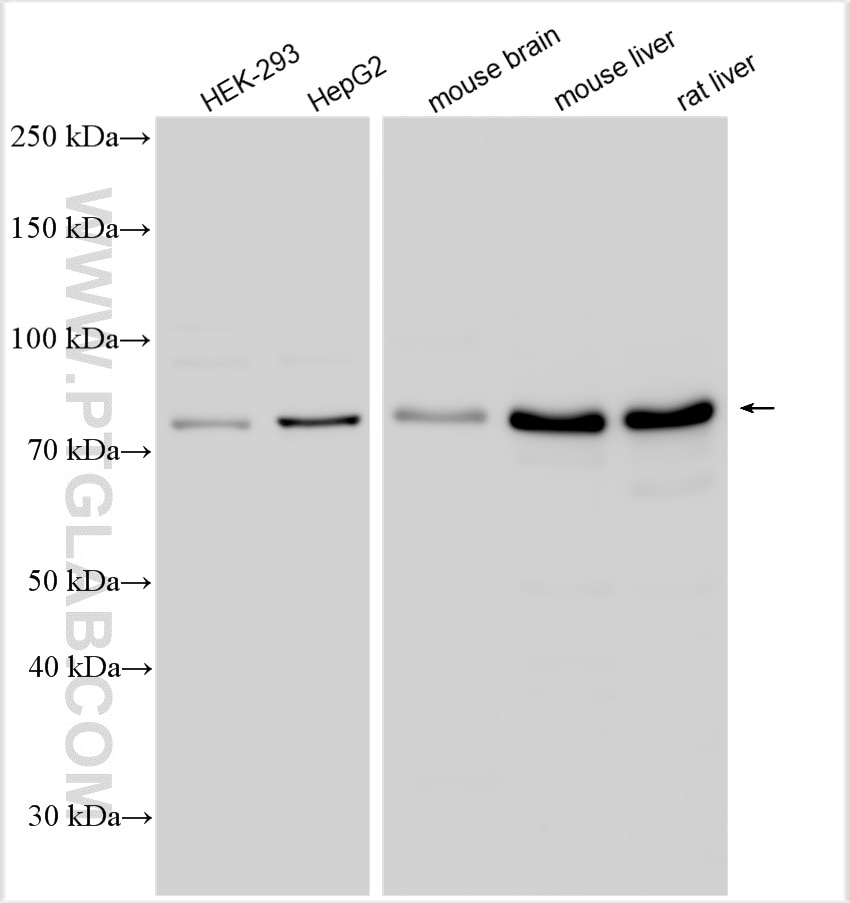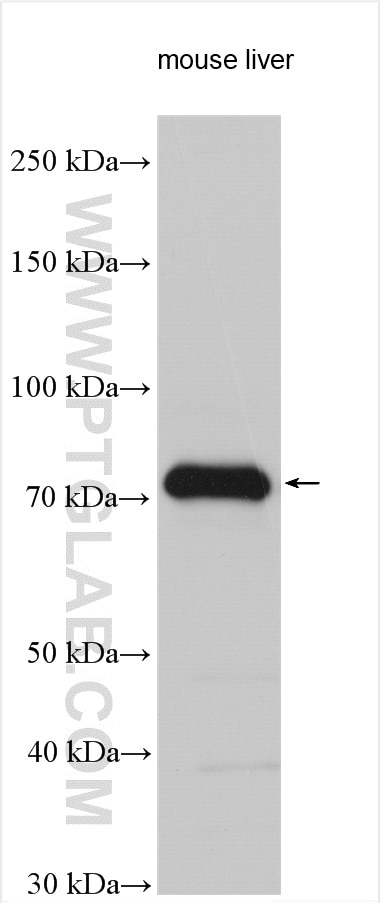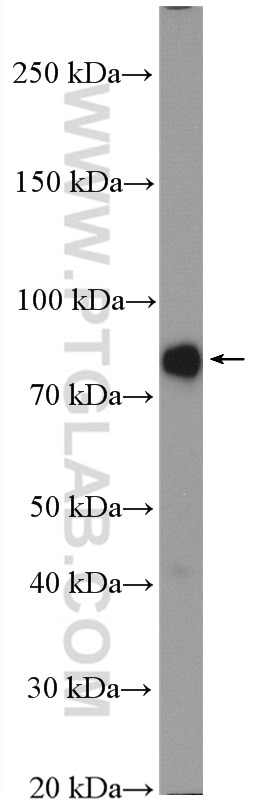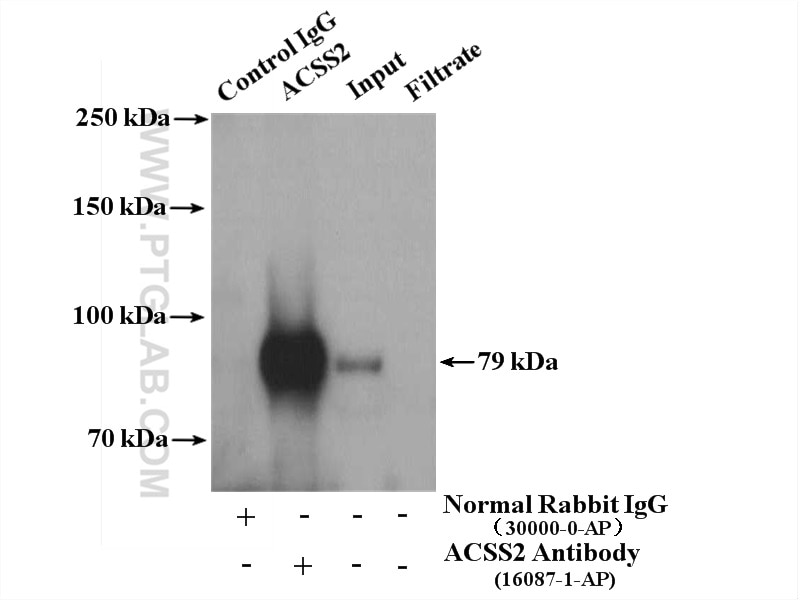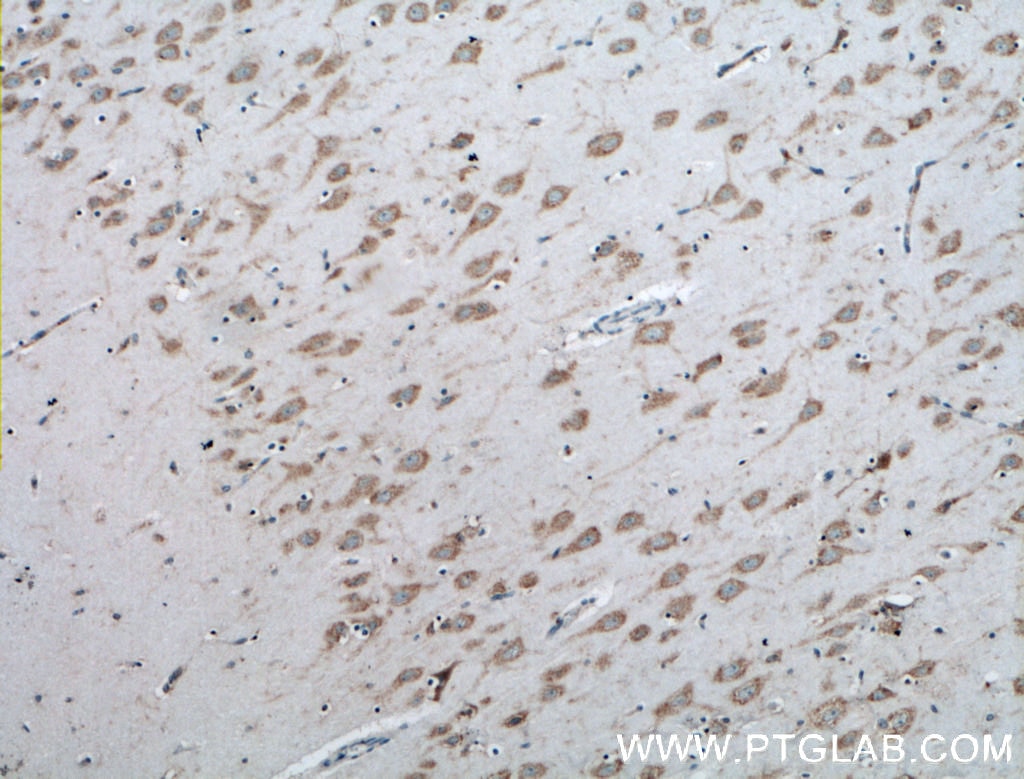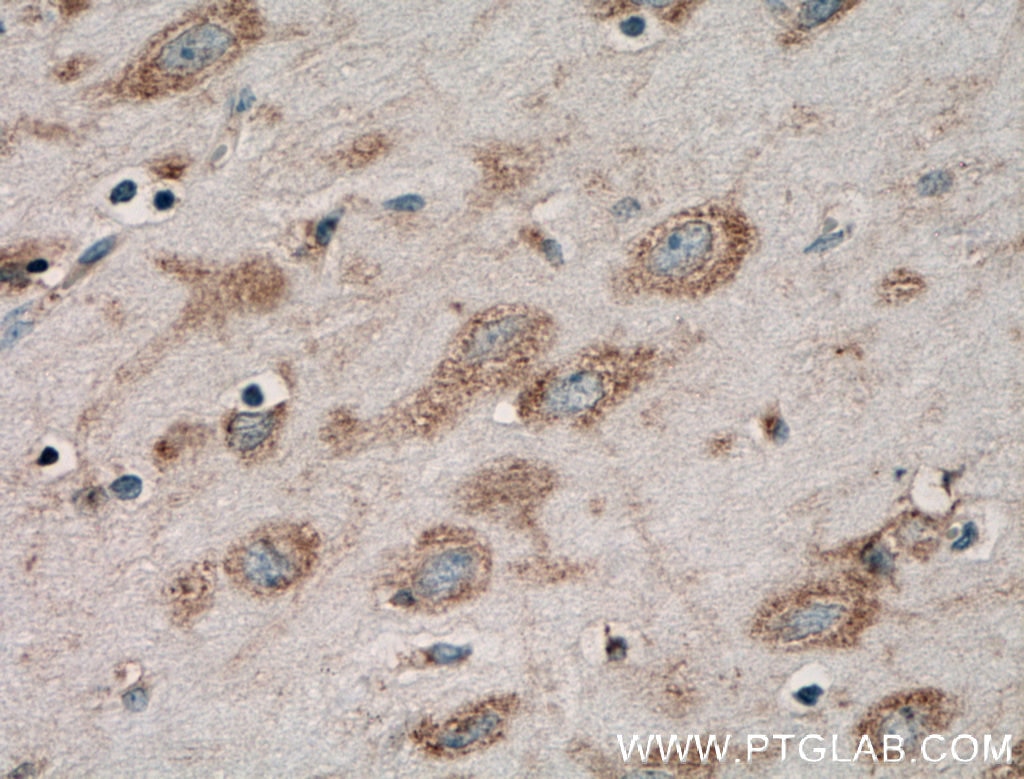Tested Applications
| Positive WB detected in | HEK-293 cells, mouse liver tissue, HepG2 cells, mouse brain tissue, rat liver tissue |
| Positive IP detected in | HepG2 cells |
| Positive IHC detected in | human brain tissue Note: suggested antigen retrieval with TE buffer pH 9.0; (*) Alternatively, antigen retrieval may be performed with citrate buffer pH 6.0 |
Recommended dilution
| Application | Dilution |
|---|---|
| Western Blot (WB) | WB : 1:1000-1:6000 |
| Immunoprecipitation (IP) | IP : 0.5-4.0 ug for 1.0-3.0 mg of total protein lysate |
| Immunohistochemistry (IHC) | IHC : 1:50-1:500 |
| It is recommended that this reagent should be titrated in each testing system to obtain optimal results. | |
| Sample-dependent, Check data in validation data gallery. | |
Published Applications
| KD/KO | See 3 publications below |
| WB | See 17 publications below |
| IHC | See 3 publications below |
| IF | See 2 publications below |
Product Information
16087-1-AP targets ACSS2 in WB, IHC, IF, IP, ELISA applications and shows reactivity with human, mouse, rat samples.
| Tested Reactivity | human, mouse, rat |
| Cited Reactivity | human, mouse, rat, pig |
| Host / Isotype | Rabbit / IgG |
| Class | Polyclonal |
| Type | Antibody |
| Immunogen | ACSS2 fusion protein Ag9121 Predict reactive species |
| Full Name | acyl-CoA synthetase short-chain family member 2 |
| Calculated Molecular Weight | 701 aa, 79 kDa |
| Observed Molecular Weight | 79 kDa |
| GenBank Accession Number | BC010141 |
| Gene Symbol | ACSS2 |
| Gene ID (NCBI) | 55902 |
| RRID | AB_2878216 |
| Conjugate | Unconjugated |
| Form | Liquid |
| Purification Method | Antigen affinity purification |
| UNIPROT ID | Q9NR19 |
| Storage Buffer | PBS with 0.02% sodium azide and 50% glycerol , pH 7.3 |
| Storage Conditions | Store at -20°C. Stable for one year after shipment. Aliquoting is unnecessary for -20oC storage. 20ul sizes contain 0.1% BSA. |
Background Information
Acetyl-CoA Synthetase 2 (ACSS2) is also named as acyl-CoA synthetase short-chain family member 2. Acetyl-CoA Synthetase 2 (ACSS2) is responsible for lipogenesis by synthesizing acetyl-CoA from acetate for lipogenesis and promotes acetylation in nuclear (PMID: 29444517). It is also required for cell migration and invasion in renal cell carcinoma (RCC) through the promotion of autophagy (PMID: 29281714). ACSS2 has two isoforms with the molecular weight of 78 and 80 kDa.
Protocols
| Product Specific Protocols | |
|---|---|
| WB protocol for ACSS2 antibody 16087-1-AP | Download protocol |
| IHC protocol for ACSS2 antibody 16087-1-AP | Download protocol |
| IP protocol for ACSS2 antibody 16087-1-AP | Download protocol |
| Standard Protocols | |
|---|---|
| Click here to view our Standard Protocols |
Publications
| Species | Application | Title |
|---|---|---|
Cell Metab Acetate enables metabolic fitness and cognitive performance during sleep disruption | ||
Mol Cell Acetyl-CoA Derived from Hepatic Peroxisomal β-Oxidation Inhibits Autophagy and Promotes Steatosis via mTORC1 Activation. | ||
Plant Physiol FDX5 deletion affects metabolism of algae during the different phases of S-deprivation. | ||
Antioxidants (Basel) Bisdemethoxycurcumin Alleviates Dextran Sodium Sulfate-Induced Colitis via Inhibiting NLRP3 Inflammasome Activation and Modulating the Gut Microbiota in Mice | ||
Am J Physiol Gastrointest Liver Physiol N-glycosylation of SCAP exacerbates hepatocellular inflammation and lipid accumulation via ACSS2-mediated histone H3K27 acetylation | ||
Neurosci Lett Anti-depressant effects of acupuncture: The insights from NLRP3 mediated pyroptosis and inflammation. |
Reviews
The reviews below have been submitted by verified Proteintech customers who received an incentive for providing their feedback.
FH Kishor (Verified Customer) (01-30-2019) | Good results in western blotting at 1:1000 dilution for human cell lines and rat liver tissue.
|
